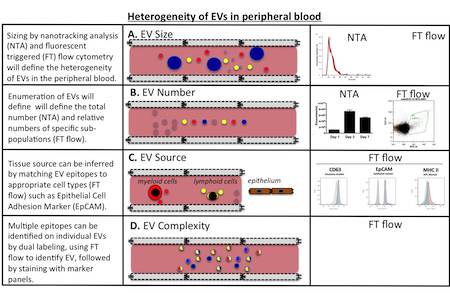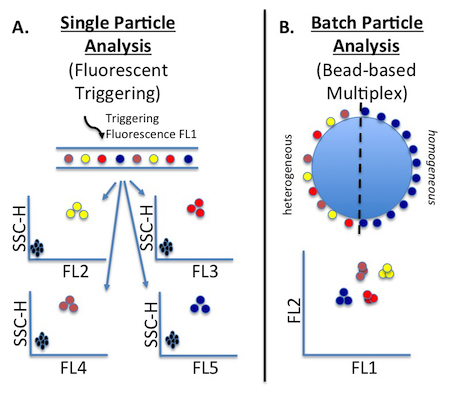Eliceiri Lab
- Eliceiri Lab
- Publications
- People
- Research
- Resources
- News
- Contact Us
Exosomes as mediators of immune cell crosstalk. Exosomes are 30-100 nm extracellular vesicles that mediate cell-cell communication (1-3), and significant regulators of immune cell crosstalk (4, 5). Little is known regarding their biological activity or the functional mechanism of exosome release in tissue injury and regeneration. Our lab brings together expertise in cutaneous injury, tumor biology and exosome biogenesis to determine the role of exosomes in immune signaling and the role of genes that mediate the release of discrete functional populations of exosomes. Our focus is on the characterization of exosomes based on a systematic analysis of their abundance, size, surface epitope profile, and payload (Figure 1). To address the heterogeneity of exosomes we use vesicle flow cytometry to identify the surface profile of individual exosomes (Figure 2). The studies proposed will dissect a novel mechanism regulating macrophage-mediated activation of adaptive immune responses in the wound bed. In this way, our findings could lead to the discovery of new therapeutic targets to accelerate wound healing.
Figure 1. Summary of key technology hurdles that are addressed by fluorescent-triggered Vesicle Flow Cytometry (VFC) for studies of patient plasma EVs.

Vesicle Flow Cytometry (VFC) using fluorescent triggering for the analysis of single EVs enables the detection of 100-500 nm diameter EVs whereas standard light scatter triggered flow cytometry only detects larger EVs.

